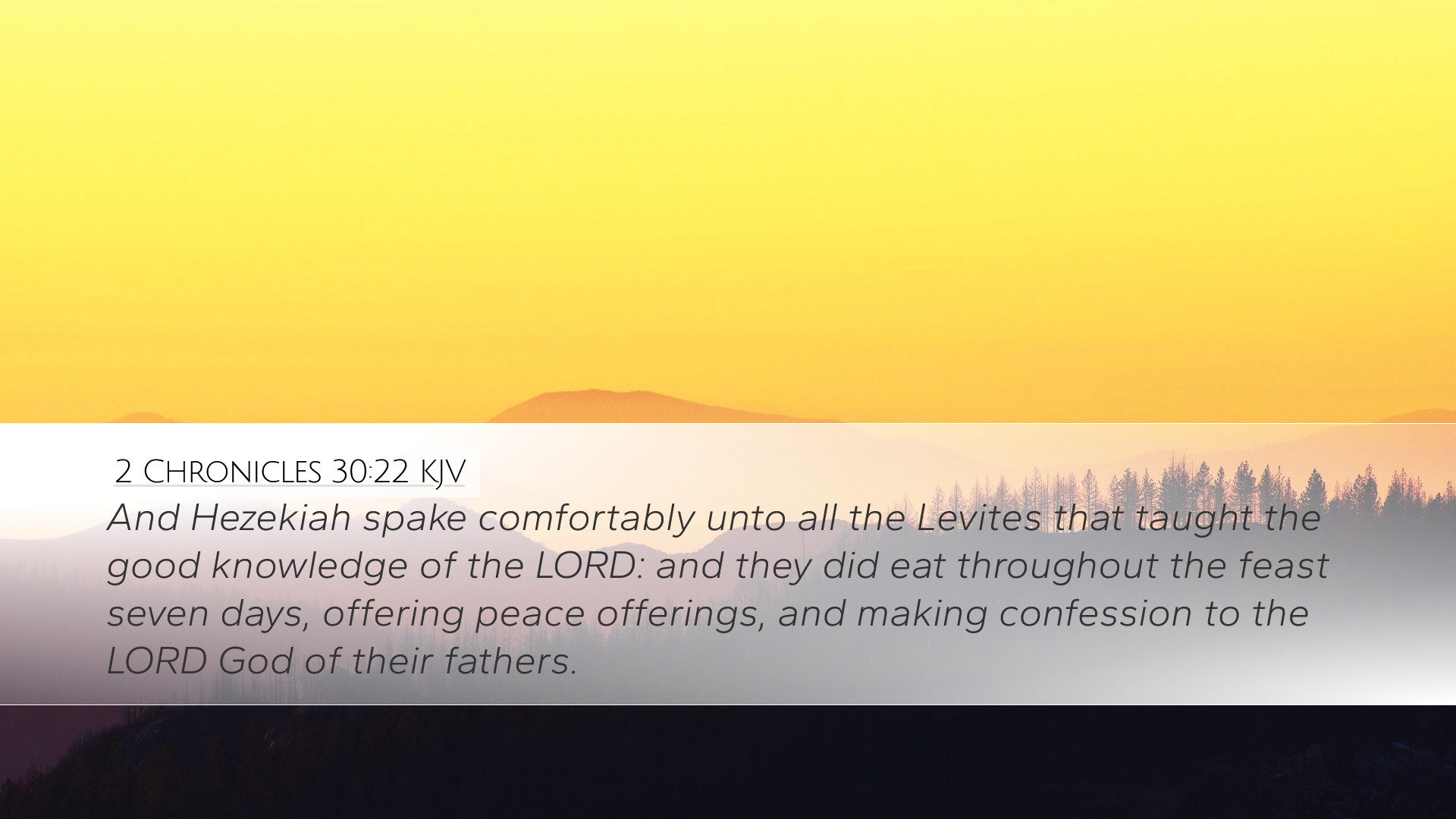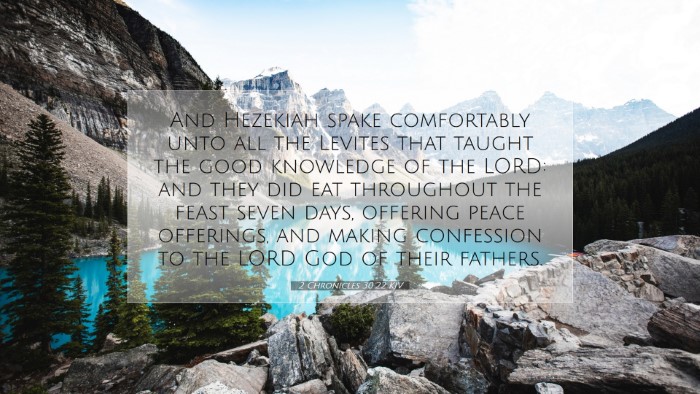Commentary on 2 Chronicles 30:22
Verse: “And Hezekiah spake comfortably unto all the Levites that taught the good knowledge of the Lord: and they did eat throughout the feast seven days, offering peace offerings, and making confession to the Lord God of their fathers.”
Introduction
This passage from 2 Chronicles encapsulates a critical moment in the reign of King Hezekiah, who played a pivotal role in the spiritual restoration of Judah. The context surrounding this verse highlights Hezekiah's efforts to reinstate proper worship, encourage unity among the tribes of Israel, and rekindle a sense of devotion towards God following a period of neglect.
Context and Setting
The backdrop of this narrative is a revival led by King Hezekiah during a moment of spiritual barrenness. After purging the temple and reinstating proper worship practices, Hezekiah invites both Judah and Israel to celebrate the Passover. This initiative not only marks a return to traditional practices but also aims to unify the divided kingdom under the worship of Yahweh.
Analysis of Key Elements
The Role of Hezekiah
Hezekiah's leadership is synonymous with restoration and reform. He speaks “comfortably” to the Levites, encouraging and affirming them in their teaching and work. This indicates a leader who is sensitive to the spiritual conditions of his people.
The Importance of the Levites
The Levites hold a crucial role in this narrative as teachers of God's law and facilitators of worship. Their active participation in the Passover celebration is vital, illustrating their dedication to the service of the Lord and the reinstatement of His worship among the people.
The Feast and Its Significance
The celebration of the feast for seven days was marked by joy and unity. It was a time for the people to come together in worship, reflecting the communal aspect of faith. The offerings made during this time signify a collective devotion and an acknowledgment of God’s mercy and provision.
Peace Offerings
Peace offerings, mentioned in the verse, were significant as they represented reconciliation between God and His people. They were a gesture of thanksgiving and dedication, reflecting gratitude and commitment to his covenant relationship.
Confession and Acknowledgment
The act of making confessions signifies repentance and the recognition of God’s sovereignty over the nation. It emphasizes the importance of humbling oneself before God, acknowledging past transgressions and seeking His grace for renewal.
Theological Implications
This verse serves as a bridge between historical actions and theological principles, emphasizing God’s desire for a sincere and devoted people. The communal aspect of worship during the feast illustrates a model for modern congregational life, encouraging unity and shared experiences of faith.
Teaching for Today’s Church
Modern pastors and theologians can draw on this text to explore themes of revival, community worship, and the necessity of proper leadership within the church context. Several key lessons arise from Hezekiah’s reign and actions:
- Restoration and Renewal: Just as Hezekiah sought to restore proper worship, today’s church is called to reconciliation and revival through the Holy Spirit.
- Leadership and Encouragement: Effective leadership, as seen in Hezekiah’s encouragement of the Levites, is essential for fostering a strong communal faith experience.
- Shared Rejoicing: The joy experienced during the celebration underscores the need for joy in communal worship within the church, promoting an environment where believers can celebrate their faith together.
Conclusion
2 Chronicles 30:22 encapsulates a moment of profound significance in the restoration of Israel’s worship practices. It serves not only as a historical account but as a theological call to recognize the importance of communal worship, leadership encouragement, and the necessity of confession and repentance. By embodying these principles, modern congregations can experience spiritual revitalization as witnessed in the days of Hezekiah.


